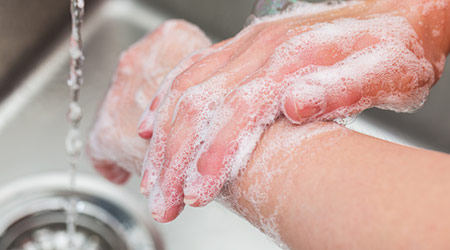
Joint Commission will now cite individual hand-hygiene failures
Hand hygiene is widely considered to be the most important intervention for preventing hospital-acquired infections
January 17, 2018
Topic Area: Infection Control
Recent Posts
 From Downtime to Data: Rethinking Restroom Reliability in Healthcare
From Downtime to Data: Rethinking Restroom Reliability in Healthcare
Manufacturers discuss the operational issues plaguing healthcare restrooms and how to shift maintenance from reactive to resilient.
 LeChase Building Four-Story Addition to UHS Delaware Valley Hospital
LeChase Building Four-Story Addition to UHS Delaware Valley Hospital
It will consolidate services into a state-of-the-art Medical Neighborhood.
 AdventHealth Sebring Breaks Ground on Expansion Project
AdventHealth Sebring Breaks Ground on Expansion Project
Construction is scheduled to begin in March and is anticipated to be completed in Fall 2027.
 Regulations Take the Lead in Healthcare Restroom Design
Regulations Take the Lead in Healthcare Restroom Design
Infection-control guidance and water management standards drive earlier planning, smarter fixtures and more resilient restroom environments.
 AHN Allegheny Valley Hospital Opens Expanded Inpatient Rehabilitation Unit
AHN Allegheny Valley Hospital Opens Expanded Inpatient Rehabilitation Unit
Construction began in July 2025 and included 12 new inpatient rehabilitation beds, bringing the unit’s total to 29.